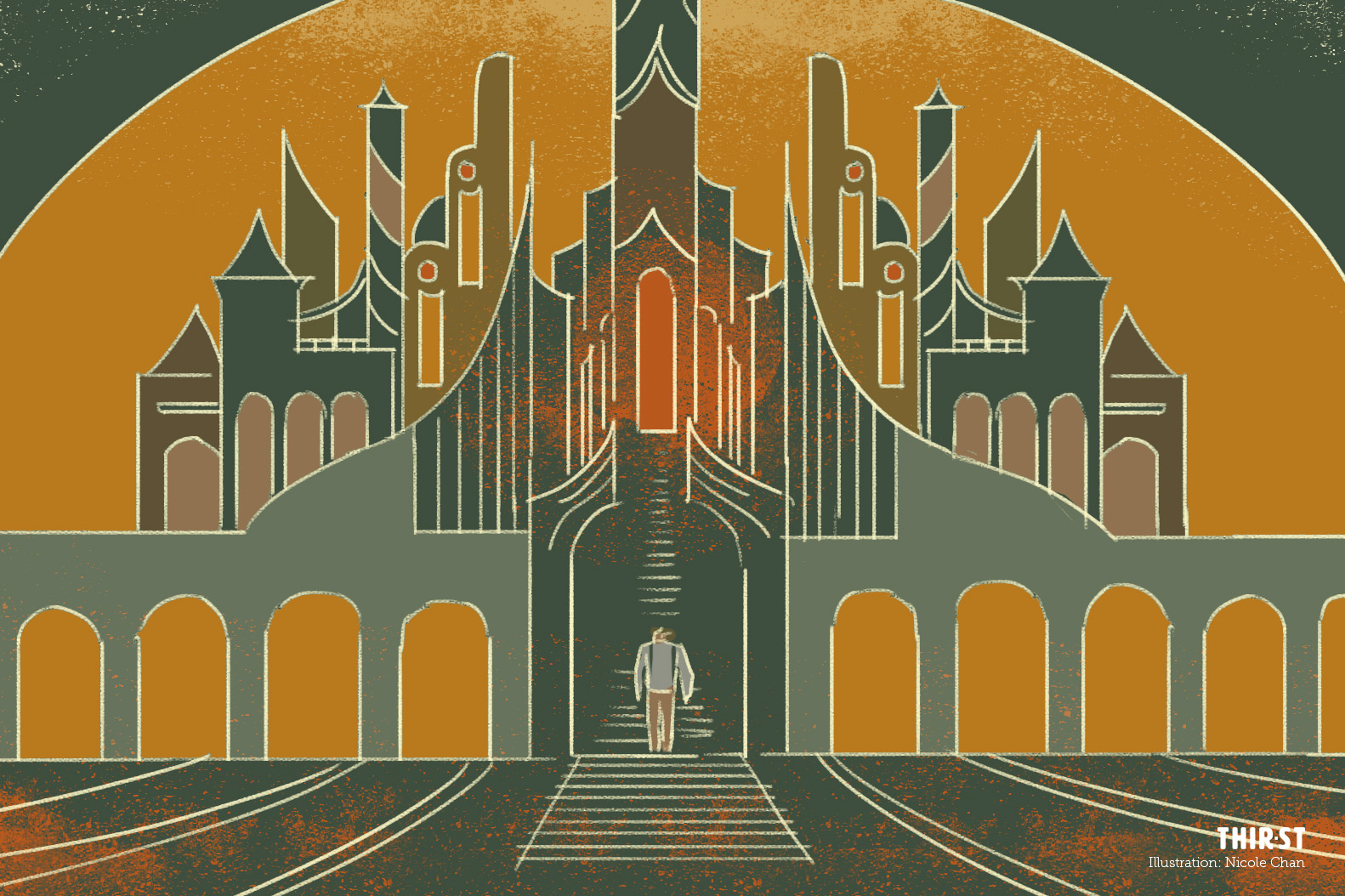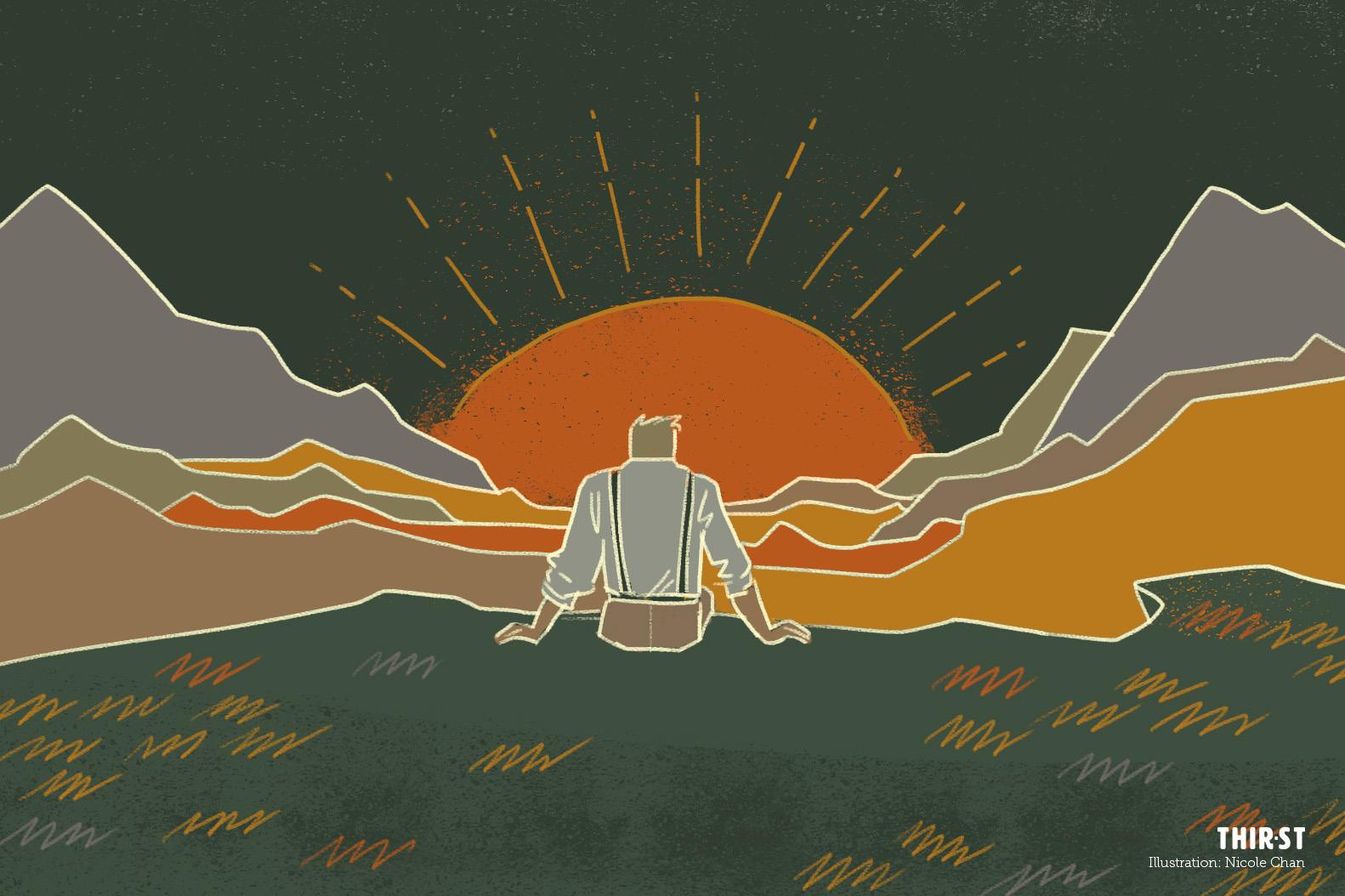Hugh Jackman has a fascinating line in the film, Australia, where he’s talking about life. It goes something like this: You only get one story, better make it a good one.
Maybe it’s work satisfaction, relational intimacy or family harmony that’ll make your life worthwhile. Or maybe you’re thinking even bigger, like justice for the oppressed.
If our society was rewriting the beatitudes (Matthew 5) in 2019, it might sound a little bit like this:
Blessed are you when you pay off your mortgage and own a piece of Singapore real estate.
Blessed are you when you can travel in the front of the plane.
Blessed are you when lots of people like your posts and selfies.
Blessed are you when you can get recognised on the street as someone famous.
Blessed are you when you get your dream job.
Blessed are you when you’re a member of an exclusive, invitation-only club.

But what if this life isn’t all that there is? What if there’s more than just the here and now?
Jesus himself speaks about what it means to follow him and he says this interesting phrase: “What good will it be for someone to gain the whole world, yet forfeit their soul?” (Matthew 16:26)
BUILDING YOUR LIFE ON HAVING EVERYTHING IS UNSTABLE
When your happiness or satisfaction is based on things around you, it can actually be taken away from you. Think of things outside of your control:
- The loss of a loved one
- A betrayal by a friend or colleague
- Unfaithfulness by a spouse
- A failure to continually perform at the top of your game at work
- Suffering and death
We are led to believe in our society that we can control so many of our circumstances. We can’t.

BUILDING YOUR LIFE ON HAVING EVERYTHING IS UNSATISFYING
John D. Rockefeller was once asked by a reporter: “How much money is enough?” His response was, “Just a little bit more.” The world’s richest man — just a little bit more.
So many of us are still living in that phase of imagining. And imagination is a beautiful thing, but we need to be aware that we’re often looking for things or experiences to do what I believe only Jesus can do — save life and give it.
It’s logically consistent: If Jesus is the author of life, then He can give and preserve life. We’re dependent beings. Dependent on an environment and so many things outside of our control. Dependent on the ratio of oxygen and nitrogen in the air. Yet we think we can generate life. Well, we can’t.
And so Jesus says: Whoever wants to save their life, will lose it (Matthew 16:25).
How does every single Disney movie end? And they all lived happily ever after. It’s almost like the movie cannot finish until we hear that. It’s placed at the end so we can leave the cinema satisfied that all is well.

It wouldn’t be all that satisfying to find out that Aladdin and Jasmine broke up after two years due to irreconcilable differences. That would be flat, wouldn’t it?
We have this desire not just for happiness — but lasting happiness. Something that doesn’t spoil, fade, perish.
Ravi Zacharias says that meaninglessness does not come from being weary of pain, but weary of pleasure. We just get so disenchanted. We’ve got everything that should satisfy, and yet it’s not working.
I think he’s right. Trying to find fulfilment and pleasure away from our Creator doesn’t satisfy.
WE WERE MADE FOR SO MUCH MORE
I don’t think this pursuit of life, without following Jesus, works. Because it’s a violation of purpose.
I believe identity is received rather than achieved. There’s a massive difference. If you have to achieve your identity, you’re always on display and performing. But if your identity is received, you have a peace and security that frees you to love others rather than use them. You already know you’re loved and cherished by God.
All of us need to decide what we’re going to do with our lives because there will be a judgment. One day we’ll have to stand before God and give an account for what we’ve done. That is part and parcel of the Good News: God is coming to establish a Kingdom and save people.

Jesus is our judge. Now, this idea is good for two reasons.
One, if Jesus isn’t our judge, who is? Other people? Yourself? If it’s other people, I’m always performing. But if Jesus is my judge, He loves me unconditionally. Not because of what’s in me, but because of what’s in Him.
Second, we all desire justice. We’re a society becoming more and more interested and obsessed with justice. We want to see harmony, peace and things put right in our world. But we cannot have justice without judgment. We’ll always be pursuing someone’s version of justice. Whose version of justice should win? You’ve got countries, worldviews competing over justice.
Jesus as our judge will bring about justice — something we all desire. One of the first things you hear out of the mouth of a child is this phrase: “It’s not fair!” There’s this innate impulse for justice in all of us, which I believe is an indicator that we’re moral beings made by God for so much more than just this life here and now.
If you’re not sure how Jesus is relevant — perhaps you actually love your life — I encourage you to look into this thing called the Resurrection.

Because if Jesus really did defeat death and rose as God’s appointed ruler and judge over the world, then what he says carries more weight than what we think or feel. What he says should be given airtime. Christians believe that Christianity matters because Jesus rose from the dead. When he speaks on life and death, He has authority.
C.S. Lewis puts it this way: “Christianity if false, is of no importance, and if true, of infinite importance. The only thing it cannot be is moderately important.”
I’m hoping you would be willing to consider these words of Christ, examine the evidence and seek for yourself: What does it profit a person to gain the whole world and yet lose his soul?
Jesus will come again as our judge. So whether you feel you have life altogether or you feel disenchanted, seriously consider Jesus. I hope you would look at what He offers and say: “Worth it.”
This article is adapted from a talk given by Jordan Thyer, an itinerant speaker for Ravi Zacharias International Ministries (RZIM), at Festival of Thought in Singapore in April 2019. Jordan is based in Perth, Australia.
- What do you derive satisfaction from? Are you satisfied?
- What do these words of Jesus mean to you: “What good will it be for someone to gain the whole world, yet forfeit their soul?”
- How important is Christianity in your life?
- If your life were a story, what kind of story would it be telling?









